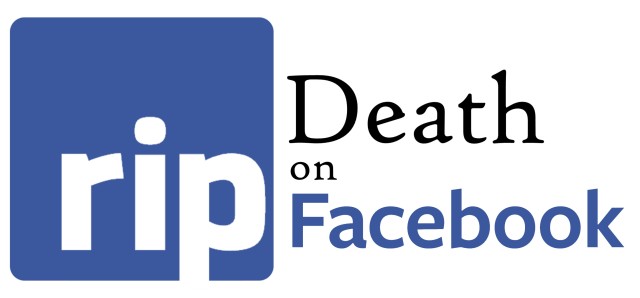
As I was going through some unpublished drafts of things I meant to write, I came across a post I began almost a year ago, after the funeral of a friend who died at the age of 35.
It started like this:
“Today I attended the funeral of a friend from back in the day. She died on Saturday, at the age of 35. Her name was Sarah Higgins, and she was a good human.
When I say Sarah was a friend from back in the day, I mean she was a friend from way back in the day. Specifically, from elementary and middle school. I hadn’t seen her for 22 years.
I hadn’t seen her for 22 years, and yet her death has hit me hard. Harder than I thought would be possible — I miss her presence in my life, even though that presence existed only virtually, through the seemingly shallow channel of social media.”
And it ended here. I couldn’t get past this point. I was feeling too raw and too confused: I felt a deep sense of grief, and yet I didn’t feel entitled to that grief. I felt guilty for grieving someone whom I hadn’t seen face-to-face for over two decades, as if I were taking something away from those who truly knew and loved her. I felt as though a Facebook friendship, even though it was based on a childhood friendship, didn’t measure up to the “real life” relationships she had with others.
But a year later, I still find myself thinking about Sarah, missing her quips and anticipating what she would comment on certain Facebook posts. She is still the first person I think of when I need advice on plants or have a story about backyard vermin. And the fact that I still miss someone I knew almost entirely from social media suggests that there is more to be said.
My friend Julie wrote an insightful piece on how much she values social media as a tool to maintain relationships. She talks about how people tend to scoff at the idea that there can be anything truly meaningful in our connections with others through Facebook or Twitter. But she disagrees with this notion, and so do I.
It is true that nothing can replace the connections we create through face-to-face communication. But that fact doesn’t take value away from other means of communication.
The origins of human interaction were intimate: we could only communicate when we were in each other’s presence. But from the moment our most ancient ancestors figured out how to scrawl drawings on the wall of a cave, our communications have constantly been evolving and expanding in scope.
And now we are able to pick up a tiny machine that contains our lives and have a real time conversation with someone as far away from us as the other side of the world, or as close to us as the room downstairs.
Even though our words pass soundlessly through cyberspace, the value of the connection between people is still there. We can get more than just news or updates: we can reach out to one another for advice and comfort and inspiration. We can unite behind a common cause. We can be present for those we care about, even if all we are doing is holding space in our hearts for someone we only ever see on a screen.
I still miss Sarah. Her wit, her quirky insights, her unfailing support for the LGBT community (and really for anyone who was marginalized by society), her compassion for animals, her prickly kindness filled my newsfeed and became part of my daily life. I missed her presence when she died, and I miss it still now.
Human connectedness is a sacred thing, and we like to hold it to traditional standards. But the way we connect with one another is changing. We can be devastated by the loss of a hero or icon we’ve never even met — think of the global heartbreak so many of us shared with the passing of David Bowie, Alan Rickman, Prince, and Mohammad Ali. And we can grieve someone we haven’t seen in decades, but who was present in our lives nevertheless.



